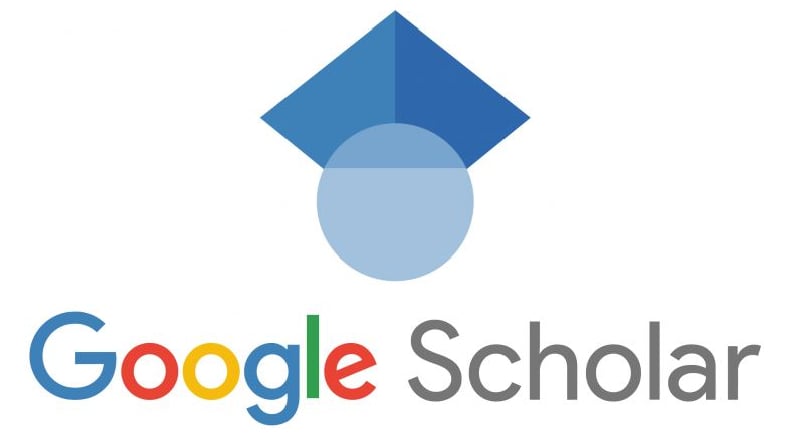Effectiveness of Video-Assisted Project Based Learning (PjBL) Model in Improving Student Learning Outcomes
Keywords:
video, project based learning, learning outcomeAbstract
The purpose of this study was to determine whether there is a significant difference between the learning outcomes of students taught using the video-based Project Based Learning model and students taught using conventional learning. This research used quasi-experimental method with Posttest Only Control Design research design. The research was conducted at MTs Al-Manar using two classes as samples, the two classes were class IX C as the experimental class and class IX D as the control class. The instruments used in this study are learning outcomes test questions, learning outcomes questionnaires and learning implementation observation sheets. Data analysis used descriptive statistical analysis and inferential statistical analysis. The results of descriptive statistical analysis showed that the average score in the control class was 75.65, while the average in the experimental class was 82.21. Inferential statistical analysis was carried out by means of t-test (independent sample T-Test test). Based on the results of the Independent Sample T-Test test, the sig (2-tailed) value is 0.001, meaning that sig <0.05 so that H0 is rejected and H1 is accepted. From the results of these calculations, the researcher concluded that there was a significant difference between the learning outcomes of ninth grade students of MTs Al-Manar who were taught using a video-based Project Based Learning model and students who were taught using conventional learning.
Downloads
References
Afif, Nur. 2023. “The Model of Scientific Learning with Bruner , Piaget and Vigotsky ’ s Theory Approach at Elementary Madrasah Schools in Banten.” Edukasi Islami: Jurnal Pendidikan Islam 12(2):1963–78. doi: 10.30868/ei.v12i02.4499.
Agranovich, Yelena, Amina Amirova, Larissa Ageyeva, Larissa Lebedeva, Sholpan Aldibekova, and Elmira Uaidullakyzy. 2019. “The Formation of Self-Organizational Skills of Student’s Academic Activity on the Basis of ‘time Management’ Technology.” International Journal of Emerging Technologies in Learning 14(22):95–110. doi: 10.3991/ijet.v14i22.11755.
Anjarsari, Cerli, Agus Suyatna, and Viyanti. 2023. “Comparison of Cognitive Learning Outcomes and Students’ Science Process Skills Between Hands on Practicum and Virtual Laboratory Based on PhET Simulation Viewed from Students’ Learning Style.” Jurnal Penelitian Pendidikan IPA 9(11):9524–31. doi: 10.29303/jppipa.v9i11.4065.
Bergman, Brenda Gail. 2016. “Assessing Impacts of Locally Designed Environmental Education Projects on Students’ Environmental Attitudes, Awareness, and Intention to Act.” Environmental Education Research 22(4):480–503. doi: 10.1080/13504622.2014.999225.
Branch, Robert Maribe. 2004. “Problem-Based Learning: What and How Do Students Learn?” Educational Psychology Review 16(3):235–66.
Çakir, İsmail, Kırıkkale Üniversitesi, and Eğitim Fakültesi. 2006. “The Use of Video As an Audio-Visual Material in Foreign Language Teaching Classroom.” The Turkish Online Journal of Educational Technology – TOJET October 5(4):1303–6521.
Henze, Ineke, Jan H. van Driel, and Nico Verloop. 2008. “Development of Experienced Science Teachers’ Pedagogical Content Knowledge of Models of the Solar System and the Universe.” International Journal of Science Education 30(10):1321–42. doi: 10.1080/09500690802187017.
Karpicke, Jeffrey D., and Janell R. Blunt. 2011. “Retrieval Practice Produces More Learning than Elaborative Studying with Concept Mapping.” Science 331(6018):772–75. doi: 10.1126/science.1199327.
Lestari, Tri Puji, Sarwi Sarwi, and Sri Susilogati Sumarti. 2018. “STEM-Based Project Based Learning Model to Increase Science Process and Creative Thinking Skills of 5th Grade.” Journal of Primary Education 7(1):18–24.
Lotulung, Chrisant Florence, Nurdin Ibrahim, and Hetty Tumurang. 2018. “Effectiveness of Learning Method Contextual Teaching Learning (CTL) for Increasing Learning Outcomes of Entrepreneurship Education.” Turkish Online Journal of Educational Technology - TOJET 17(3):37–46.
Merchant, Zahira, Ernest T. Goetz, Lauren Cifuentes, Wendy Keeney-Kennicutt, and Trina J. Davis. 2014. “Effectiveness of Virtual Reality-Based Instruction on Students’ Learning Outcomes in K-12 and Higher Education: A Meta-Analysis.” Computers and Education 70:29–40. doi: 10.1016/j.compedu.2013.07.033.
van Merriënboer, Jeroen J. G., Otto Jelsma, and Fred G. W. C. Paas. 1992. “Training for Reflective Expertise: A Four-Component Instructional Design Model for Complex Cognitive Skills.” Educational Technology Research and Development 40(2):23–43. doi: 10.1007/BF02297047.
Pangkey, Celline, Jeffry Lengkong, Mozes Legi, and Widdy H. F. Rorimpandey. 2023. “Application of the Project-Based Learning Model To Improve Indonesian Language Learning Outcomes for Class V Elemntary School Students.” Journal of Educational Learning and Innovation (ELIa) 3(2):303–17. doi: 10.46229/elia.v3i2.724.
Panjaitan, Muktar Bahruddin, Mashudi Alamsyah, Martua Ferry Siburian, Endang Fatmawati, Uslan Uslan, and Gunaria Siagian. 2023. “Improving Students’ Learning Outcomes in Natural Science Subject for Third Grade of Elementary School Through Video Media.” Jurnal Obsesi : Jurnal Pendidikan Anak Usia Dini 7(3):3253–66. doi: 10.31004/obsesi.v7i3.4632.
Pradhita Yudhi Astri, Tantri, Gunarhadi Gunarhadi, and Riyadi Riyadi. 2018. “Numbered-Board Quiz with TGT to Improve Students’ Science Achievement Based on Learning Motivation.” International Journal of Educational Research Review 3(4):68–76. doi: 10.24331/ijere.452982.
Retno Utari. 1942. “Taksonomi Bloom.” 1–13.
Sugiyono. 2020. Metode Penelitian Dan Pengembangan (Research And Devolep- Ment/R&D). Bandung: Alfabeta.
Tamim, Suha R., and Michael M. Grant. 2013. “Definitions and Uses: Case Study of Teachers Implementing Project-Based Learning.” Interdisciplinary Journal of Problem-Based Learning 7(2):5–16. doi: 10.7771/1541-5015.1323.
Downloads
Published
How to Cite
Issue
Section
License
Copyright (c) 2024 Yulianti Yusal, Ummiy Fauziah Laili, Ibrahim Bin Sa’id, Eva Alvi Nurlaili, Meirita Sari

This work is licensed under a Creative Commons Attribution 4.0 International License.






